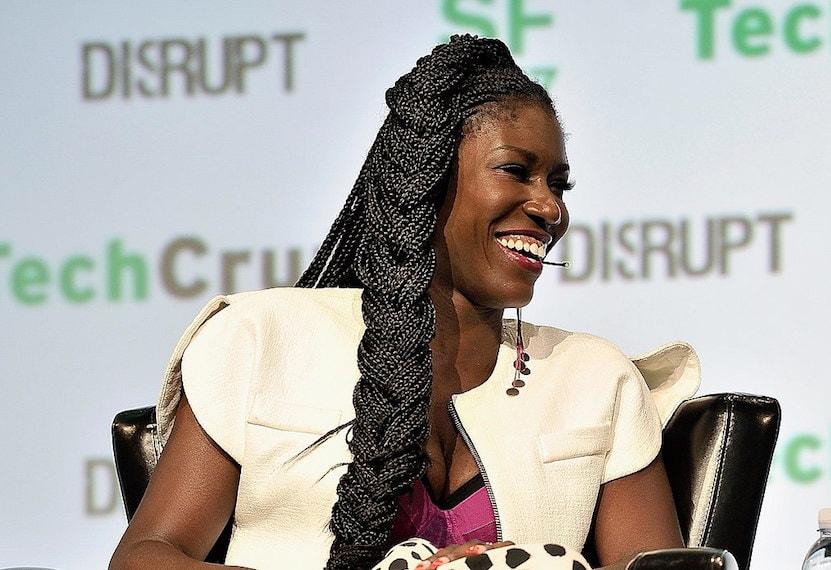
Must-Have Techie Holiday Gifts We All Need
December 19, 2022
Black-Owned Christian Media Content App Goes Viral
January 10, 2023It’s hard to believe that it’s Christmas again and that 2023 is around the corner. As most people know, Christmas celebrates the birth of Jesus Christ, who Christians believe is the son of God.
But Jesus and Christmas weren’t always universally recognized or celebrated. Viewed through an entrepreneurial lens, more than 2000 years ago Jesus founded an entirely new religion, which faced a lot of high-powered opposition to its disruptive force. His start-up didn’t fail, even though he was literally crucified.
Surprisingly, Christmas is only mentioned in 2 chapters in one of the 4 Gospels in the New Testament Bible – Matthew. Easter, which “celebrates” the crucifixion, death and rebirth of Jesus, is really the crux of the Christian religion and occupies the bulk of the 4 Gospels. Yet Christmas is treated by the public at large as a much bigger holiday.
So how did the Christian “pitch” evolve and spread from Jesus’s original 12 “followers”? What made it go “viral” to become the world’s largest religion with over 2.4 billion followers (or approximately one-third of the world’s population)? And how did a story that is only referenced in 2 brief chapters in a book with almost 1200 chapters become the “most celebrated and universally recognized holiday worldwide”?
I’d argue that it all comes down to the power of a good, well-constructed, engaging, and easy-to-understand story with clearly defined characters and a clear value proposition. Jesus often spoke in memorable, engaging parables, which are defined as “simple stories used to illustrate a moral or spiritual lesson”. Though a lot of founders are already wannabe Messiahs with mini-God-complexes, many resist the simple commandments of effective communication, which have been exemplified so beautifully in the story of Christianity and Christmas. Please allow me to suggest 7 key lessons:
1. Understand your audience
Even though Jesus’s original purpose was to liberate the Jewish people, his disciples adapted his message and narrative as they encountered new audiences in such a way that many non-Jews would eventually become convinced that Jesus was their Messiah. As the managing director of Techstars NYC powered by J.P. Morgan, we are currently reviewing almost 1000 applications for our next call, which ends on January 4, 2023. We invest cheques of up to $120,000 in 24 start-ups per year. Yet despite the money and opportunities at stake, I’ve noted that many founders don’t adapt their pitches to take into account the stage, thesis, and other attributes of the investor or corporate to which they are pitching. Investors, in particular, are in search of big, growing markets and evidence that the start-up in question may someday become the dominant player in a large market (e.g., Amazon or Airbnb). Corporations are usually looking for companies that will satisfy a key strategic aim or create a new line of business. A lot of founders that pitch me spend a lot of time telling me what they do, but not why Techstars, given its focus and ambitions, should care.
2. Explain how you fit into the larger story
Even though Christianity is nominally about Jesus as the Christ, it’s also about more than Jesus. For Christians, it’s the fulfillment of earlier prophecies, and the New Testament Bible spends a lot of time explaining how he fits into God’s larger plan. Too many founders pitch as if their start-up is the only company to have ever contemplated the same problem, without any reference to competitors, analogues, or antilogs. Decontextualized in this way, their stories lack resonance, particularly for investors who have seen various other start-ups try and fail to solve the exact same problem. For example, don’t pitch that because people are lonely, you are launching a social networking app; explain your unique insight taking into account all of the existing substitutes and why you are still materially better than Instagram, Facebook, and Tik Tok, who are seen as the dominant incumbents in the space and from whom you’ll probably need to convince users to switch.
3. Be clear about the problem you are solving and why it’s a biggie
Jesus understood that life was tough for most people, and his message was that he was the definitive answer to their existential pain. The key verse in Christianity, from my point of view, is John 3:16: “For God so loved the world that he sent his only begotten son so that whoever believes in him should not perish but have everlasting life.” I wouldn’t trust most founders who promised me eternal life, but it is useful to understand why users and customers will care that your start-up exists and that it will make their lives better in some materially meaningful sense.
Christ literally means “the anointed one”. A lot of founders pitch why they are good, but few really focus on explaining why they are potential GOATs or unicorns. Venture capital investments only work if there are hugely successful outliers to offset the many unsuccessful investments. That’s the cost of investing in risky, early-stage companies. History doesn’t tend to remember the also-rans, and in many markets, the winner takes all. Explain why you are likely to be the one that we’re still talking about in 10 (or 2000!) years, even as most of your competitors will fade into irrelevance.
5. Show us your miracles: Jesus didn’t just tell us he was the one, he showed it
Part of the reason that Christmas is so celebrated is that the Christmas story centers on the miracle of a virgin birth. Beyond that, Jesus turned the water into wine (a gift I sometimes wish I had), walked on water, and raised Lazarus from the dead. Jesus had some serious traction. Without it, many would have regarded him as little more than a delusional cult leader. Similarly, most founders risk seeming a bit delusional, because they claim to see something no one else can see and believe that they can do something few others can. The key to getting others to believe something potentially fanciful rests in showing and not just telling. This means both showing your product demo and/or user journey, and highlighting key bits of traction.
6. Make your story easy to remember and share
Part of growing from 12 followers to more than 2.4 billion in the pre-Internet era was having a story that could be shared by word-of-mouth. Sometimes a founder will pitch me, and if someone were to ask me afterward what they did, I’d either have already forgotten or would struggle to explain it. Either is probably fatal to a start-up’s chances of getting funded.
7. Do unto others as you would have them do unto you
2022 has been a year of villains, from Putin’s war in Ukraine to populist political leaders who appear bent on fostering discord and discrimination. Investors are people too, and part of an effective pitch is generating some sort of enthusiasm about the possibility of spending more time with your portfolio companies as they attempt to build ambitious businesses over the course of the next decade, even if they fail in the process. I’m not sure I’m quite so beatific as to advise consistently turning the other cheek, but life is too short to hang out with difficult, arrogant, or uncoachable founders, unless their traction is off-the-charts, and perhaps not even then.
So as we begin to celebrate Christmas, let’s remember that Jesus was, arguably, the greatest founder of all time, bigger than Steve Jobs or Bill Gates. He is the progenitor of a religion that has survived more than 2000 years and converted almost one-third of the planet into his followers. Whether or not you are a Christian, we can all learn a lot from him, particularly those of us concerned about convincing others that we are not delusional when we say that we’ve discovered the next big thing.
Happy holidays!
Gary Stewart is the Managing Director of the Techstars New York City Accelerator powered by J.P. Morgan. Open to founders of all backgrounds, Techstars NYC, powered by J.P. Morgan, is designed to provide equitable access to funding and support for Black, Hispanic and Latino, Indigenous American, and Pacific Islander entrepreneurs. Interested? Then apply here before the Jan 4, 2023, deadline.








